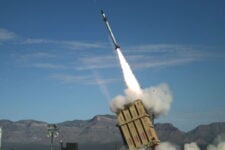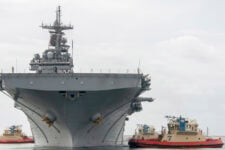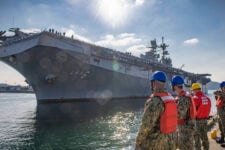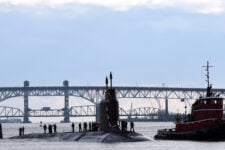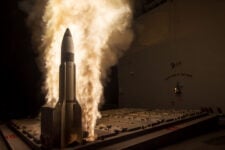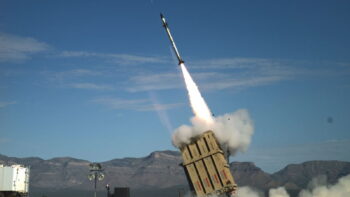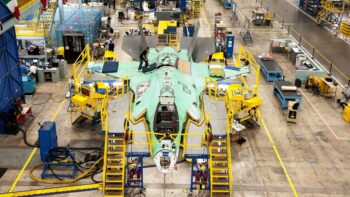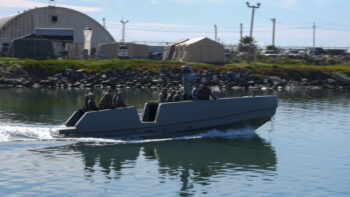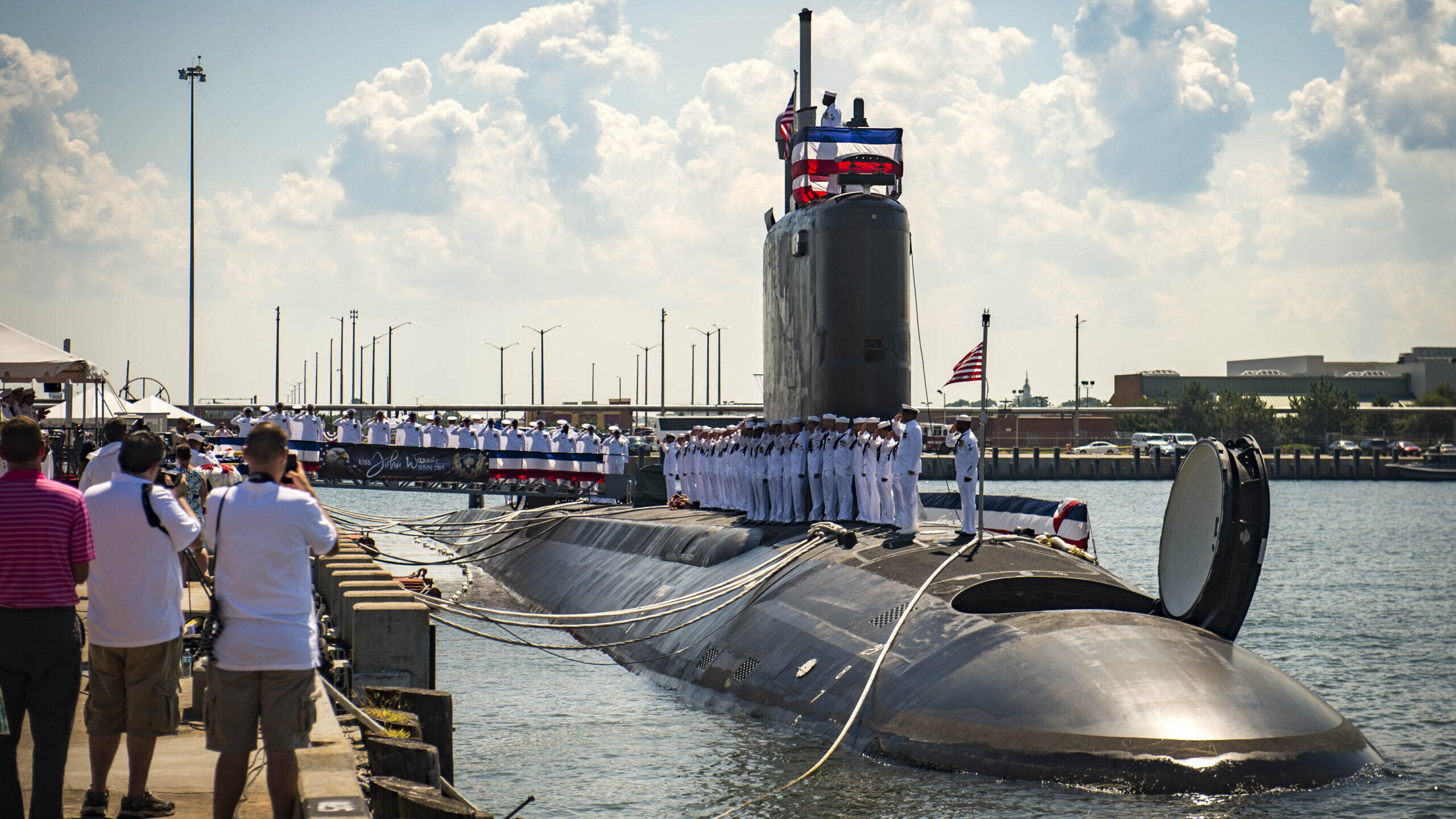
Virginia-class submarine USS John Warner at its commissioning. (US Navy photo)
WASHINGTON — Independent government auditors have found the Navy’s Virginia-class fast attack submarine program is continuing to “degrade,” and that problems with “staffing and work efficiency estimates” will result in each Block V boat taking an average of “over [two] years longer than reported last year.”
“Due to delays, program officials are developing a new, more realistic schedule for Block V. They said that they expect to complete this process in early 2023,” according to a new report by the Government Accountability Office outlining the status of various major Pentagon weapon system programs.
Auditors wrote that program officials said the Navy’s shipbuilders lack a sufficient workforce to complete the Virginia-class program while also building Columbia-class ballistic missile submarines. “They noted VCS construction is about 25 percent below staffing needs as of September 2022,” according to the report. The potential for the workload of building both two Virginia-class submarines as well as one Columbia-class submarine each year to overwhelm the Navy and its industrial workforce has been a longstanding fear voiced by the Pentagon and lawmakers over the years.
GAO also noted that the shipbuilders are starting to outsource certain submarine work that they may have otherwise done in their own yards. Breaking Defense reported earlier this year that General Dynamics Electric Boat, the prime contractor for the Virginia-class submarines, tapped Austal USA to produce two modules destined for both submarine classes.
The report states that the issues that have caused scheduling delays are also prompting cost increases, which will lead the Navy to seek additional funds from Congress to finish building the Block V boats.
“While the fixed price incentive contract set target and ceiling prices for each submarine, program officials reported that the VCS shipbuilders have not met the work efficiency and material cost estimates that informed the target pricing,” according to the report. “Consequently, the Navy plans to request more funds to complete Block V, as its prior budget requests covered the target prices, but not up to the ceiling prices.” The report does not provide specific dollar amounts related to the cost increases.
A spokesman for General Dynamics Electric Boat today declined to comment on the GAO report when reached by Breaking Defense. A spokesperson for Naval Sea Systems Command, which oversees submarine construction for the Navy, did not immediately respond to a request for comment.
GAO routinely solicits the Pentagon’s feedback as part of its annual audits. In their report, auditors stated the Navy’s program office said it “remains challenged” to meet a two ship per year construction rate. Program officials also told GAO that the Navy is working with its shipbuilders and investing in the submarine industrial base to improve the program’s production capacity.
Marines eye 2025 fielding of 3 new, mobile air defense systems
“We are on track from a programmatic standpoint — cost, schedule performance — but we’re always gonna be late to need,” said Col. Andrew Konicki, the program manager for Ground Based Air Defense (GBAD). “The threat is ever changing and ever evolving.”
